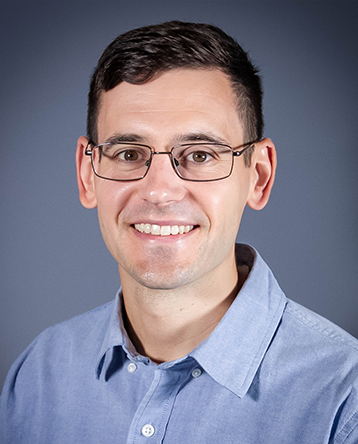David Rounce
Assistant Professor
Assistant Professor

David Rounce joined the Civil and Environmental Engineering Department at Carnegie Mellon University in Fall 2020. He received his BS in civil engineering in 2010 from Villanova University and his master’s degree in environmental and water resources engineering in 2012 and Ph.D. in civil engineering in 2016 from the University of Texas at Austin. He conducted postdoctoral research in the Glaciers Group at the University of Alaska Fairbanks.
Rounce’s research seeks to quantify the response of glaciers, water resources, and hazards to climate change to inform adaptation and mitigation efforts at local, regional, and global scales. His work uses computational models informed by remote sensing and grounded in fieldwork to produce actionable information.
2016 Ph.D., Civil Engineering, University of Texas at Austin
2012 MS, Environmental and Water Resources Engineering, University of Texas at Austin
2010 BS, Civil Engineering, Villanova University
Civil and Environmental Engineering
At the 28th annual United Nations Climate Change Conference (COP28), CEE professors Destenie Nock and David Rounce discussed topics such as energy efficiency, climate mitigation, mountain glaciers, and global temperature rise.
NASA
CEE’s David Rounce responds to a NASA study that found half of glaciers vanish with 1.5 degrees of warming.
Scott Institute
Three CMU-led energy projects have been awarded seed grants from the Wilton E. Scott Institute for Energy Innovation.
CNN
CEE’s David Rounce comments on recent research about Thwaites Glacier, nicknamed the “Doomsday Glacier.” Roughly the size of Florida, this glacier is largely held in place by an ice shelf, and the new study exemplifies how its collapse could drive catastrophic sea level rise.
CNN
Research by CEE’s David Rounce on global glacier loss was referenced in a CNN article. Rounce also praised a new study that examined the potential negative impact glacial lake outbursts could have on many communities. “This is a really nice first pass to understand where we have invested a lot of our time and our research efforts and where we can improve,” Rounce says.
AP News
A study led by CEE’s David Rounce used satellite images to predict glacier loss over the next several decades as global temperatures rise. “No matter what, we’re going to lose a lot of the glaciers,” Rounce says. “But we have the ability to make a difference by limiting how many glaciers we lose.”
CMU Engineering
David Rounce led an international effort to produce new projections of glacier mass loss through the century under different emissions scenarios.
Civil and Environmental Engineering
Students were broken into four teams—glaciers, deforestation, urbanization, and water resources—and tasked with developing javascript codes to work with Google Earth Engine.
CMU Engineering
Research performed in collaboration with partners around the world significantly changes our understanding of glacial debris cover and its effect on glacial melt.
Congratulations to EPP’s Daniel Armanios, CEE’s Sarah Christian and David Rounce, INI’s Hanan Hibshi, and MSE’s Vincent Sokalski on being selected as 2021-2022 Provost’s Inclusive Teaching Fellows at the Eberly Center for Teaching Excellence and Educational Innovation.